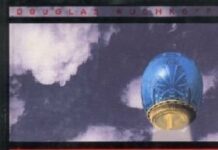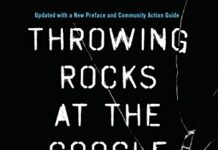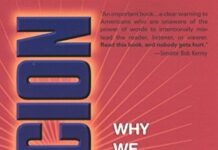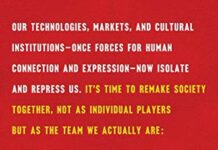
Ebook Info
- Published: 2011
- Number of pages: 152 pages
- Format: PDF
- File Size: 2.73 MB
- Authors: Douglas Rushkoff
Description
The debate over whether the Net is good or bad for us fills the airwaves and the blogosphere. But for all the heat of claim and counter-claim, the argument is essentially beside the point: It’s here; it’s everywhere. The real question is, do we direct technology, or do we let ourselves be directed by it and those who have mastered it? “Choose the former,” writes Rushkoff, “and you gain access to the control panel of civilization. Choose the latter, and it could be the last real choice you get to make.”In ten chapters, composed of ten “commands” accompanied by original illustrations from comic artist Leland Purvis, Rushkoff provides cyber enthusiasts and technophobes alike with the guidelines to navigate this new universe.In this spirited, accessible poetics of new media, Rushkoff picks up where Marshall McLuhan left off, helping readers come to recognize programming as the new literacy of the digital age––and as a template through which to see beyond social conventions and power structures that have vexed us for centuries. This is a friendly little book with a big and actionable message.
User’s Reviews
Editorial Reviews: Review Praise for Program or Be Programmed”Now that much of what Rushkoff has predicted over the years has come to pass, he is uniquely qualified to write what may be one of the most important and instructive books of our times: Program or be Programmed: Ten Commands for a Digital Age. In it, he outlines ten different ideas that information technology is biased towards; biases that can cause discord in our lives. However, rather than predicting that the sky is falling, Rushkoff gives practical and actionable advice on how to turn those biases into advantages.” —Wired”Lucid and consequential . . . a subtle and substantiated call for (missing) humanity in networked daily life.” —Neural.it“Thinking twice about our use of digital media, what our practices are doing to us, and what we are doing to each other, is one of the most important priorities people have today—and Douglas Rushkoff gives us great guidelines for doing that thinking. Read this before and after you Tweet, Facebook, email or YouTube.” —Howard Rheingold“Douglas Rushkoff is one of the great thinkers––and writers––of our time.” —Timothy Leary“Rushkoff is damn smart. As someone who understood the digital revolution faster and better than almost anyone, he shows how the internet is a social transformer that should change the way your business culture operates.” —Walter Isaacson“What’s the difference between being able to operate in the web, and being able to thrive there? The difference is in being able to understand the how and why of this new world. In ten chapters or commands, Douglas Rushkoff lays out how to live in this new world. Some of this advice will seem straightforward, some of it will need explanation, and some of it will seem more than a little counterintuitive. But all of it is delivered with verve and insight that makes you rethink your interactions on the web. Are you driving your life here, or only a passenger? If you want to get your hands on the wheel, this book is a good place to start.” —Daily Kos“Rushkoff presents ten succinct commands for choosing our own destiny in the online era, ranging from Do Not Be Always On to Do Not Sell Your Friends. In the process, he presents a way we can actively leverage these technologies to build a more shareable world similar to the one we envision in our report The New Sharing Economy, as opposed to allowing our tools and those who create them to define the social constructs of the current era.” —Shareable.net About the Author Douglas Rushkoff is a world-renowned media theorist, and the originator of ideas such as “viral media,” “social currency” and “screenagers.” He has been at the forefront of digital society from its beginning, correctly predicting the rise of the Net, the dotcom boom and bust, as well as the current financial crisis. He is a familiar voice on NPR, face on PBS, and writer in publications from Discover Magazine to The New York Times.
Reviews from Amazon users which were colected at the time this book was published on the website:
⭐To explain how I came across this book, I have to make a confession: since my family doesn’t subscribe to cable television, the only time my kids or I watch cable TV (or much TV at all, really) is when we’re on the road, visiting family or otherwise. My son, predictably gravitates to Disney and the Cartoon Network, but I’m a C-SPAN man. And when CSPAN-2 has Book TV, I’m watching it. So guess when and where I saw Douglas Rushkoff interviewed about his new book. That’s right. When I can watch anything on cable television, I go to Book TV.Confession out of the way, what makes this book worthy of the Neil Postman Award that it won (I just learned that such an award exists) is its refusal to let any digital technology become transparent, something that’s a mere window through which we see the world as the world happens to be. From the first Arpanet connections to email to the ubiquitous vibrating phones (and accompanying “phantom phone buzz syndrome”), Rushkoff keeps his sharp eye on the assumptions that one has to make before the technology makes any sense: that one should adjust one’s personal biological rhythms to the atemporal “always on” existence of computer networks rather than vice versa; that the world should conform its complexity to the reductionism of binary choices; and that human beings are meant to exist as infinitesimal nodes in a vast global network, just to name three. Spelling out those assumptions, Rushkoff does not so much give ten commands as ask ten penetrating questions, questions that ought to haunt human beings as we jump on board the Internet train.Why ten commands, then? Rushkoff, whose approach to technology is the same secular-Jewish approach that Neil Postman made famous with Technopoly and Amusing Ourselves to Death, describes the rise of alphabetic writing as a technological change that made intelligible a genuinely new order of civilized life and the Torah in particular as that body of alphabetic writing which allowed the slave-tribes of Israel to develop into a genuine civilization in the ancient Near East. Likewise, Rushkoff suggests, folks in the Internet age are experiencing a genuinely new kind of consciousness, one as different from the print age’s as the alphabetic consciousness would have been from the oral cultures which preceded it. His book is set of suggestions to help people navigate the new age the way that the Ten Commandments helped the Hebrews become Israel. If he were operating in a religious register, such a claim for his own book would be nothing short of ludicrous, but within his own Cultural Materialist framework, there is a certain degree of sense, on a formal level, to the analogy. A more adequate analogy for the Christian audience, I reckon, is the work that another book, perhaps written by one of our readers, might tackle.The upshot of Rushkoff’s ten brief chapters is that, like alphabetic language, computer networks do not regulate themselves. Just as alphabetic writing has the capacity both for glorious Psalms and the vain name-taking that one of the commandments prohibits (I’ll let my readers supply the numbering, as Lutherans and Presbyterians do that differently), computer networks have the capacity both to slow down our processes of ethical deliberation and other forms of serious thought (as the old dial-up connections used to do, Rushkoff notes) or to enslave us to a pace of connection that journalists call “always-on” and the human body calls slow murder. Likewise, because information flows so easily on packet-switching networks, the Internet has the capacity to serve as the vehicle for a new culture of collaboration and cooperative creativity or as a place where nobody records music or movies because they’re only going to get stolen. Each of Rushkoff’s first nine “commands” follows the same sort of pattern, first noting the great potential for human flourishing that digital networks promises and then noting the danger for human destruction that the same characteristic threatens. Obviously this is the sort of cultural ecology that Marshal McLuhan and Neil Postman made famous, and Rushkoff honors his predecessors by showing the same attention to detail that they did, never simply replicating the analysis that McLuhan did of television or Postman of the early Internet but letting the particular observations that all of us should be making determine the shape of the analysis that Rushkoff offers.The tenth “command” was the most interesting from my point of view because it included an explicit program for cultural renewal. As many of us who came through the public schools in the eighties and early nineties can attest, “computer classes” used to mean programming: whether it was LOGO in grade school, BASIC in junior high, or C++ in high school, we learned the tools to make computers do things that other people hadn’t thought of before, and although our products were often puerile and sometimes entirely indecent (I hope they’ve discarded those old servers from the early nineties, I’ll admit), still the fact remained that computers were, for us, what Rushkoff calls “anything machines,” terminals that promised infinite flexibility for those determined enough to use it. Computer education has, of course, shifted since then: “computer literacy” now seems to mean the ability to operate (at a fairly complex level, to grant the point) programs that large corporations have already written, to do audio-visual presentations on out-of-the-box platforms and perhaps (in the really advanced courses) to edit photographs and video using software sold (at a premium) by the Apple corporation.The point of this brief history of computer education is that Rushkoff wants to see programming reintroduced to the common curriculum, not only for those who are going to be information-systems professionals but for every citizen who’s going to be an educated contributor to society. Against the conventional wisdom of the Web 2.0 age, Rushkoff insists that there’s no place in a democratic society in the computer age for one class of programmers and a much larger class of end-users; like literacy and mathematics, to acquire a working knowledge of computer code is simply to know the fabric of the civilization that citizens are supposed to help run. Like Postman before him, Rushkoff calls for such an education governed not by the “specialists” in the field but by computer-literate, generally educated elder citizens, or to put it in our lingo, by digital humanists.As someone who is not a computer professional (I’m an English teacher, remember?) but who has a working knowledge of some computer languages, Rushkoff’s suggestions resonate with me. In fact, they struck me as so true that, upon finishing the book, I immediately went to one of the web resources, Learn Python the Hard Way, and started re-educating myself so that I can be a better teacher. (As I write this, I’ve completed lesson two.) I’m also lending this book (before this review goes live) to a computer programming professor at Emmanuel College so that he can read it and tells me what he thinks, and perhaps at some point, down the line, we can get going on a cyber-humanist club or some other kind of extra-curricular pursuit that combines insights from Neil Postman and Al Gore and Douglas Rushkoff with Christian-worldview sorts of resources from Arthur Holmes and Ed Cyzewski and Stan Hauerwas. (Yes, Al Gore wrote a pretty nice book of cultural-ecological criticism. I reviewed it here.) Until then, this is one of those books that hit me so hard that I can’t just review it–I positively recommend it.This review is cross-posted from the Christian Humanist Blog.
⭐Worried about the effect that ever expanding information technologies are having on global culture, our personal lives and how we interact with one another? Well, Douglas Rushkoff is (and if you’re not, you either haven’t been paying attention or you’re too young to remember the pre-internet world). “Program or Be Programmed” offers some timely reflections on the state of what’s happening to us now. Maybe future readers will look back and laugh…or maybe they’ll look back and say at least someone saw it coming.Some of Rushkoff’s observations seem spot-on, while others are a bit more questionable. For example, he laments the lack of availability of computer programming classes at the high school level fearing that students are learning only how to operate the software without ever understanding the methods of its creation. That strikes me as an odd concern. One could just as easily argue that programmers are at a fundamental disadvantage lacking an understanding of the electrical engineering which makes modern microprocessors possible. That logic could be extended backward ad infinitum. (Do I need to understand Boolean logic in order to, say, build a website?)His more astute observations deal with things like the often cited shortening of attention spans, the valuation of the recent over the relevant, the stress caused by the constant onslaught of new data (about which he says “for the first time, regular people are beginning to shows signs of stress and mental fatigue once exclusive to air traffic controllers and 911 operators”), and the separation of people from their physical surroundings (“our digital behaviors closely mirror those of Asperger’s sufferers; low pick up on social cues and facial expressions, apparent lack of empathy, and the inability to make facial contact”).One of the more disturbing behaviors that omnipresent internet-enabled digital devices spawn is the attitude that a person’s online representation of themselves (a sort of simulation of one’s self) is more important than actually experiencing that life. This is a phenomenon in which it’s more important to one’s self valuation to be seen as being at all the right events, socializing with all of the right people having a better time than one’s audience than it is to actually enjoy the event being experienced. We’re all celebrities now (at least within our circle of digital followers).He chronicles another familiar modern phenomenon: the mashup. Creative works that once stood as isolated and indivisible are now subject to infinite duplication, disassembly, rearrangement and publication as “new” works. Are they really new? If I rearrange the songs on your album and lay some new beats over top of it, am I an artist? Good question. It’s something that the world’s filmmakers will have to struggle with as their audience slices up their movie oeuvre and inserts characters from the film into a movie of their own making.All is not lost, however. He highlights a positive trend in online communication: surfacing the truth. When statements are posted and circulated online which are inaccurate or flat out false, someone somewhere is going to see it and call out that falsehood. He says that “the way to flourish in a mediaspace biased toward nonfiction is to tell the truth.” He quickly adds a caveat to that saying that “this means having a truth to tell.”
⭐As someone who works on and with the Web for a living I found this a short, enjoyable and eminently quotable book. Recommended!
⭐All gr8!
⭐The world is changing and this book gives an insight into how we can participate in that change. Definitely worth reading.
⭐Everyone should read this amazing book before facebook, tweet, email ou you tube again!Program and not be programmed….Enjoy it!
⭐Un “must-have” à l’heure d’internet et des smartphones.Un vision pertinente et pragmatique de notre monde connecté, dépendant de l’informatique.Une réflexion intéressante sur la nécessité d’apprendre à nos enfants à programmer pour comprendre l’envers du décor du monde numérique.
⭐
Keywords
Free Download Program or Be Programmed: Ten Commands for a Digital Age in PDF format
Program or Be Programmed: Ten Commands for a Digital Age PDF Free Download
Download Program or Be Programmed: Ten Commands for a Digital Age 2011 PDF Free
Program or Be Programmed: Ten Commands for a Digital Age 2011 PDF Free Download
Download Program or Be Programmed: Ten Commands for a Digital Age PDF
Free Download Ebook Program or Be Programmed: Ten Commands for a Digital Age




